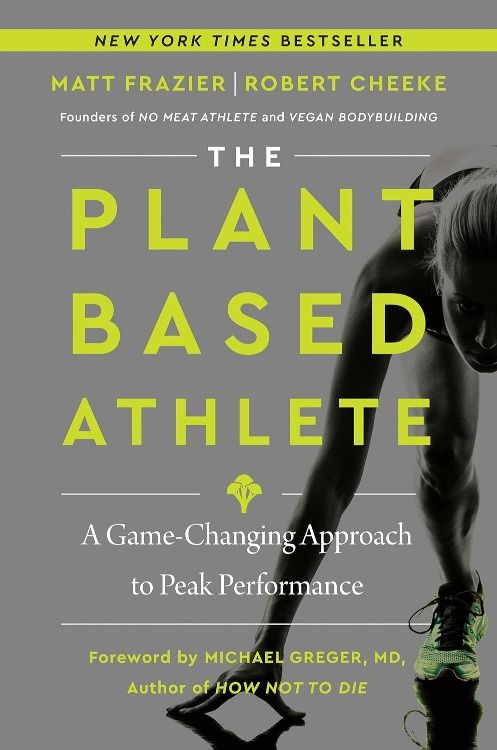The Plant Based Athlete

I was promised a "research-based guide", but was given propaganda. Mostly propaganda whose main claims I ultimately agree with: "You can be a good athlete, even a great athlete, without eating meat. And it's also ethical." But it's still more concerned with convincing people than being fair.
Here are the main points:
- Plenty of elite level athletes are vegan. Many credit a lot of their success to their vegan diet.
- You can get all the nutrients you need from plant foods, though they do suggest supplementing B12 and other supplements to a lesser extent.
- A plant based-diet is healthier than a typical diet. I'd note that a typical diet is not primarily bad because it contains meat.
- There are ethical concerns. This wasn't the main point, considering the word "athlete" is in the title, but it is brought up, and it's the part I have the least criticism for.
- There are lots of ways you can prepared a healthy plant based diet. The last section of the book is a lot of recipes.
The main differences it's had on me:
- It made me more aware of successful vegan athletes. I've moved away from meat for ethical reasons, but performance is also something I care about.
- I've been slowly transitioning away from meat for years, and this finally convinced me to not eat fish either.
- It encouraged me to have more fresh fruit around. I have frozen fruit, but it's not the same. It's not as immediately available.
I'm working on getting what I can from books without dwelling on parts I don't think are great. That said, I was mostly disappointed with this book. There's no need to go through each item, but here are a few themes and examples.
Criticisms:
- It's lopsided. I generally agree with their main point that people should eat a more plant based diet, but it didn't seem like they were trying to evenly evaluate or portray the issue.
- It's not guaranteed, but there's an implicit claim that going vegan will noticeably improve your athletic achievements. If it reliably caused anything like the difference in athletic performance they make it out to cause, I'd be setting PRs in everything as I dropped meat consumption over time.
- The difference between having a healthy non-vegan diet and a healthy vegan diet was was discussed, but then mostly ignored.
- "In the face of the chronic disease epidemic or processed-food society faces, it doesn't matter. And that way, the distinction between paleo and vegan is completely insignificant. We both agree: eat whole foods. That's what will make the difference in people's health and in our food system, and it's neither paleo or vegan.”
- The message of the book overall, though, is that even the difference between vegan and vegetarian is harmful to your athletic performance.
- There are claims about stretching that are presented with as much confidence as the sections that have citations to scientific papers.
- There's a lack of nuance to saying: "Every single plant contains all the amino acids in varying proportions." It's true, but it doesn't tell you much. The amounts matter.
tl;dr - I'm on board with moving toward a more plant based diet, both personally and societally. I'm more concerned for ethical reasons, but you can definitely be entirely vegan and a successful athlete. My main criticism is that I don't think their presentation is trying to be an unbiased approach. I watched GameChangers and it's much the same.